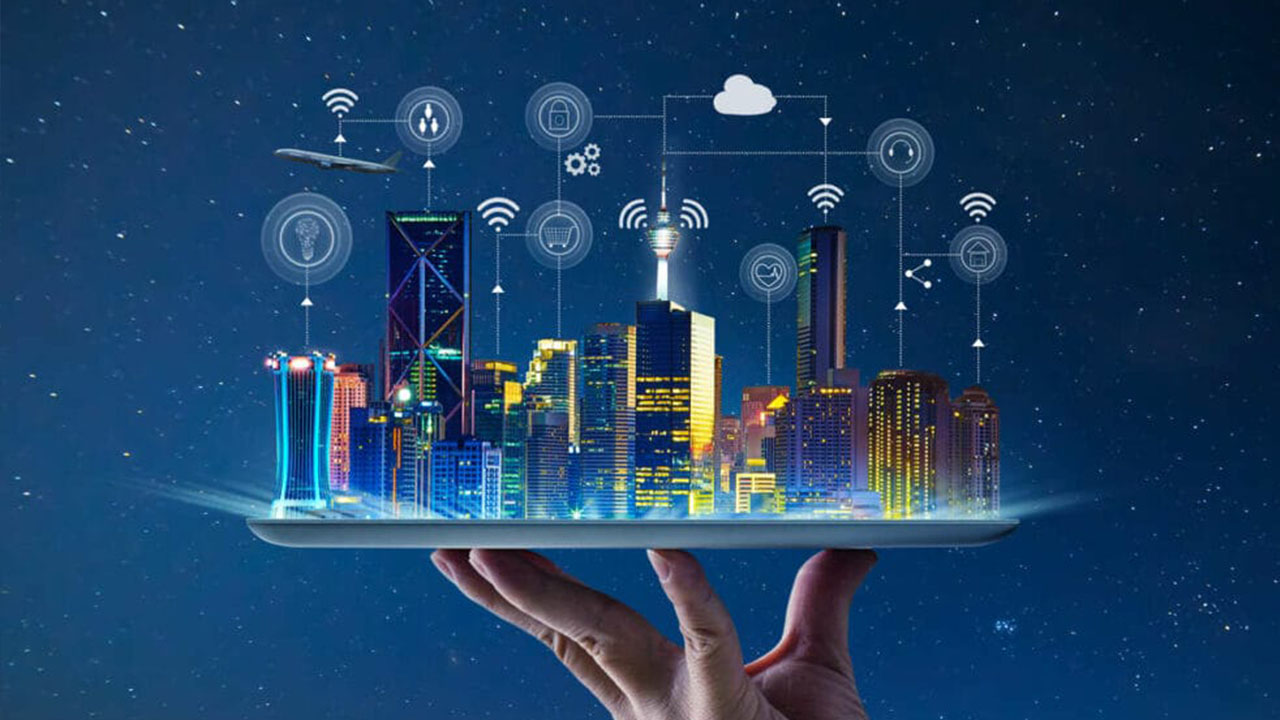As the world population grows rapidly, urban life is becoming increasingly complex. Rising traffic, energy consumption, environmental pollution, and security issues are pushing the limits of traditional city management approaches.
This is exactly where smart city technologies come into play: we harness the power of technology to make cities more livable, sustainable, and efficient.
But what exactly are smart cities, and how do they work?
Come, let’s explore in detail together.
What Is a Smart City?
A smart city is an urban model that optimizes infrastructure, services, and public administration through information and communication technologies (ICT).
These cities are equipped with sensors, software, artificial intelligence, big data analytics, and the Internet of Things (IoT). The goal is both to enhance citizens’ quality of life and to use resources more efficiently.
🔹 Key Features:
- Real-time data collection and analysis
- Automated decision-making systems
- Citizen engagement and transparency
- Optimization of energy and resource management
- Sustainability and environmental sensitivity
Core Technologies Used in Smart Cities
The foundation of smart cities lies in the strength of their technological infrastructure:
📡 1. Internet of Things (IoT)
- Devices and sensors across the city are interconnected.
- Data such as traffic congestion, air quality, and energy consumption are collected in real-time.
🧠 2. Artificial Intelligence (AI) and Machine Learning
- Data is analyzed, allowing systems to learn and adapt autonomously.
- For example, traffic lights adjust automatically based on traffic density.
☁️ 3. Cloud Computing
- Large datasets are stored and processed in the cloud.
- This enables the management of massive data volumes quickly and securely.
🔐 4. Big Data and Data Analytics
- Collected data is transformed into meaningful insights.
- City managers make faster and more accurate decisions based on these insights.
⚡ 5. 5G and Advanced Communication Technologies
- Ultra-fast internet connections enable seamless communication between devices.
Application Areas of Smart Cities
Smart cities are not just a pile of technologies.
These technologies are applied to solve concrete problems.
🚗 1. Smart Transportation
- Dynamic traffic management
- Smart parking systems
- Integration of autonomous vehicles
- Optimization of public transport routes
💡 2. Smart Energy Management
- Integration of renewable energy sources
- Smart meters
- Energy consumption analytics
- City-wide energy efficiency campaigns
🏢 3. Smart Buildings and Infrastructure
- Automated lighting systems
- Building management with heat and water sensors
- Early detection of infrastructure faults
🚨 4. Smart Security Systems
- Real-time monitoring and emergency alerts
- Facial recognition systems
- Smart policing applications
🌱 5. Environmental and Waste Management
- Air quality sensors
- Smart waste collection systems
- Monitoring and optimization of water resources
🏥 6. Smart Healthcare Services
- Telehealth solutions
- Location-based emergency service dispatch
- Remote health data monitoring
Examples of Smart Cities Around the World
🔹 Singapore
- Recognized as the world’s smartest city.
- The entire city infrastructure is integrated with IoT sensors.
- Traffic, energy, and water usage are optimized in real time.
🔹 Barcelona
- Stands out with smart bus stops, dynamic lighting systems, and water conservation projects.
🔹 Copenhagen
- Conducts smart energy management projects aimed at achieving carbon-neutral city status.
Smart City Initiatives in Turkey
Many municipalities in Turkey are also investing in smart city projects:
- Istanbul: Smart traffic management and the “İBB CepTrafik” app
- Konya: Smart bicycle rental systems
- Ankara: Smart intersection systems and waste management projects
However, there is still a need for extensive investments and system integrations to transition to a fully integrated smart city model.
The Future of Smart Cities
In the future, smart cities will feature:
- Autonomous vehicles as a fundamental part of urban life
- 100% use of green energy sources
- Artificial intelligence becoming the main decision-maker in city management
- Citizens participating directly in city governance through mobile apps
In short, cities will manage themselves like living organisms.
Smart Cities Are Ready for the Future with Duranka Technology
Duranka offers innovative solutions that make a difference in smart city projects.
With our IoT-based infrastructure systems, energy management solutions, and data-driven city management platforms, we are helping cities step into the future.
With Duranka, make your cities:
- More efficient
- Safer
- More livable
👉 Contact us today and take a step closer to the cities of the future!


